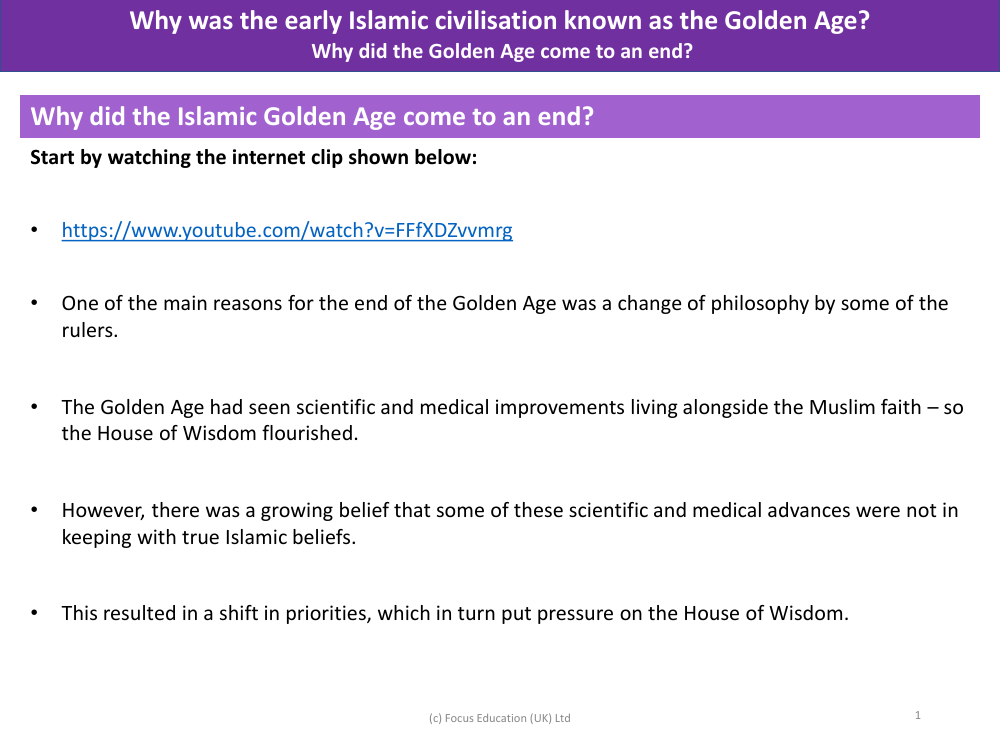Why did the Islamic Golden Age come to an end? - Info Pack - Year 6

History Resource Description
The decline of the Islamic Golden Age, a period renowned for its remarkable advancements in science, medicine, and philosophy, can be attributed to a multitude of factors. One significant reason was a shift in the philosophical outlook of some Muslim rulers. During the Golden Age, there was a harmonious coexistence between scientific progress and the Muslim faith, which allowed institutions like the House of Wisdom to thrive. However, over time, a growing belief emerged that certain scientific and medical advancements were incompatible with true Islamic principles. This change in perspective led to altered priorities and placed considerable strain on the House of Wisdom, contributing to the Golden Age's decline.
External pressures also played a pivotal role in the end of the Islamic Golden Age. By the early 15th century, the Muslim civilisation had endured invasions and attacks, notably from the Crusaders in regions like Spain, Turkey, and Palestine, as well as the devastating Mongol invasion across Persia, Iraq, and Syria. These conflicts brought about the destruction of key centres of learning, with the sacking of Baghdad in 1258 resulting in the loss of innumerable manuscripts. Similarly, in Cordoba, Spain, a vast portion of the city's 600,000 Islamic books were obliterated. The loss of territories such as Spain and Sicily, followed by the military campaigns of Timur, known as Tamerlane, dealt further blows to the Muslim world. These events collectively marked the beginning of the decline of Islamic civilization, signaling an end to a period of classical scholarship and bringing the Golden Age to a close.



